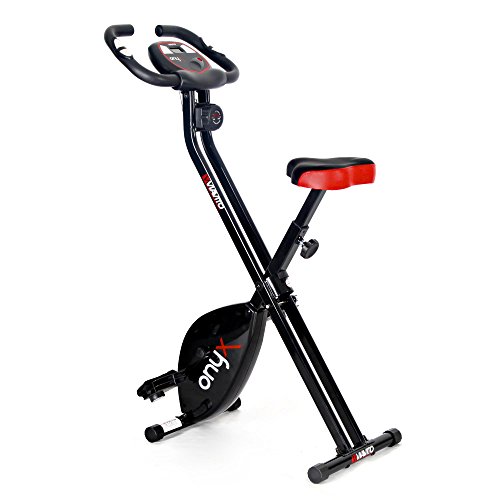5. Exercise Bike Projects For Any Budget
페이지 정보
작성자 Brandi 댓글 0건 조회 2회 작성일 25-08-24 00:28본문
The Comprehensive Guide to Exercise Bikes: Benefits, Types, and Best Practices
Exercise bikes have penetrated the fitness market, working as efficient tools for cardiovascular exercises, rehabilitation, and weight management. With their capability to duplicate outdoor cycling experiences while offering a controlled environment, exercise bikes accommodate users of all fitness levels. This short article explores the various kinds of exercise bikes, their benefits, and the finest practices to maximize your workout session.

Benefits of Using an Exercise Bike
Cardiovascular Health: Regular usage of an exercise bike significantly enhances cardiovascular fitness. It increases heart rate and blood flow, promoting healthier lungs and heart.

Low Impact on Joints: Exercise bikes offer a low-impact workout choice. Unlike running or running, cycling minimizes stress on the knees, hips, and back, making it ideal for individuals with joint discomfort or those recovering from injuries.
Caloric Burn: A vigorous cycling session can burn a substantial variety of calories, helping in weight-loss and management. For circumstances, a 155-pound individual can burn around 260 calories in 30 minutes of energetic biking.
Muscle Strengthening: While mainly a cardiovascular exercise, cycling also reinforces and tones the muscles in the legs, glutes, and core. Changing the resistance can further challenge the muscles.
Convenience: Exercise bikes offer unmatched convenience. Users can exercise in the convenience of their own homes, making it easier to preserve a constant fitness routine.
Versatile Workouts: With stationary bicycle, users can take part in different workout designs, from high-intensity interval training (HIIT) to steady-state cardio, dealing with divergent fitness objectives.
Types of Exercise Bikes
Comprehending the different kinds of exercise bikes on the marketplace assists potential purchasers make informed choices based upon their fitness needs and spending plan.
| Type of Exercise Bike | Description | Suitable For |
|---|---|---|
| Upright Bike | Comparable to conventional bikes, these bikes offer a standard cycling posture. | General fitness lovers |
| Recumbent Bike | Offers a reclined position with a bigger seat. | Individuals with back concerns |
| Spin Bike | Created for high-intensity cycling classes; usually geared up with a flywheel for resistance. | Fitness class individuals |
| Air Bike | Integrates limb workouts; includes a fan for cooling and increased resistance. | Professional athletes and HIIT enthusiasts |
| Foldable Bike | Compact and space-efficient; easily saved when not in use. | Individuals with minimal space |
Table: Pros and Cons of Different Types of Exercise Bikes
| Kind Of Exercise Bike | Pros | Cons |
|---|---|---|
| Upright Bike | Compact, budget-friendly, flexible | Less comfortable for long trips |
| Recumbent Bike | Comfortable, lower back assistance | Takes up more area |
| Spin Bike | Excellent for high-intensity exercises | Can be more costly |
| Air Bike | Full-body workout, adjustable resistance | Can be noisy |
| Foldable Bike | Space-saving, simple to store | May do not have durability |
Finest Practices for Using an Exercise Bike
To optimize the benefits of exercising with a bike, users should follow specific guidelines:
Proper Setup: Ensure that the seat height and handlebar position are properly adapted to fit your body. An improper fit can lead to injury and pain.
Warm-Up: Always take 5-10 minutes to heat up before diving into a workout. This assists to prepare your muscles and joints for the activity.
Stay Hydrated: Keep a water bottle close by. Hydration is crucial to keeping stamina and efficiency during the workout.
Keep Correct Posture: Keep your back straight and core engaged while cycling. Prevent leaning too far forward or slumping as it can result in pressure.
Mix Up Workouts: Variety is vital for avoiding plateaus and keeping exercises interesting. Alternate between steady-state sessions and interval training.
Listen to Your Body: Always pay attention to how your body feels during and after workouts. Adjust intensity levels as needed to avoid overexertion.
Regularly Asked Questions (FAQs)
Q1: How often should I utilize a stationary bicycle to see outcomes?A1: For optimum outcomes, aim for at least 150 minutes of moderate-intensity cardio or 75 minutes of high-intensity cardio weekly.
Q2: Can anybody utilize a stationary bicycle?A2: Yes, exercise bikes appropriate for all fitness levels. However, individuals with specific health issues should speak with a physician or fitness professional before starting a brand-new exercise regimen.
Q3: What is the distinction in between a recumbent bike and an upright bike?A3: Recumbent bikes offer a reclined seating position, providing back assistance and comfort, while upright bikes mimic the posture of conventional biking, engaging the core more extremely.
Q4: How do I keep my exercise cycle for home bike?A4: Regularly examine and clean up the bike, check for loose screws, and take notice of the resistance mechanism. Regular maintenance extends the lifespan of the equipment.
Q5: What are some suggestions for picking the best exercise bicycle stationary bicycle?A5: Consider factors like your fitness objectives, offered area, budget, and individual convenience. Test trip different designs to discover the Best Stationary Bikes For Exercise suitable for you.
Stationary bicycle stay a popular choice for home exercise equipment best gyms and gym alike, offering a myriad of advantages customized to users' individual fitness goals. Understanding the different types, advantages, and best practices can help users make informed choices and enhance their cycling exercises. Whether one seeks to improve cardiovascular health, build strength, or drop weight, including routine sessions on a stationary bicycle can yield long lasting positive effects on overall well-being.
댓글목록
등록된 댓글이 없습니다.

